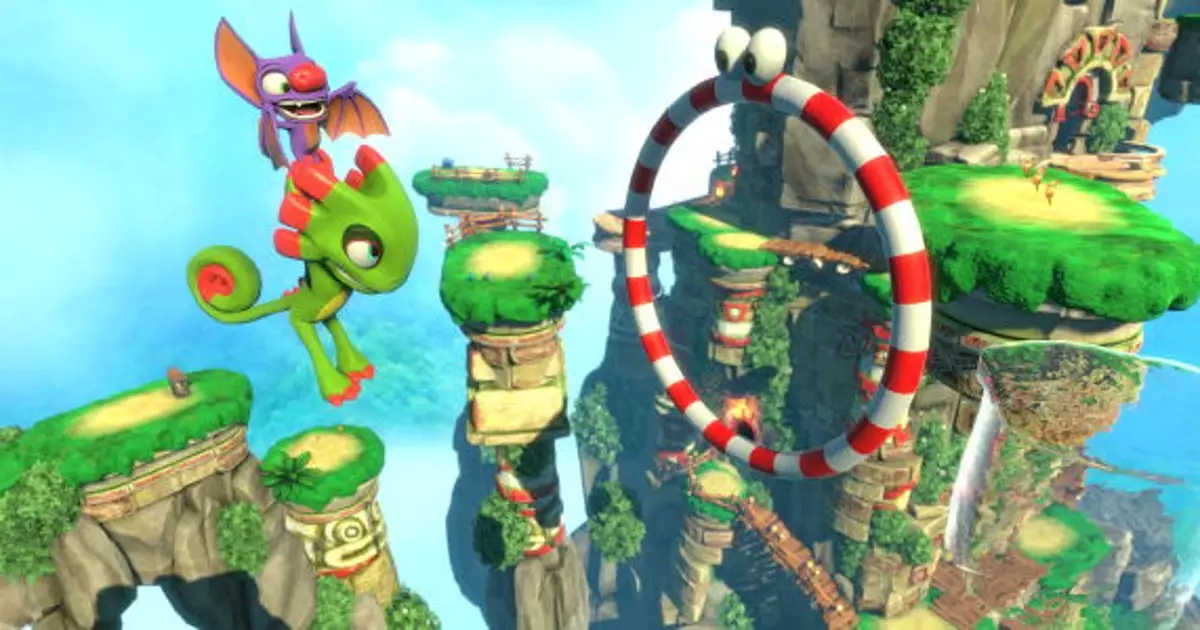Recent news from Playtonic Games, known for their colorful revival of the platforming genre, has sent ripples through the gaming community. The company announced significant layoffs, impacting numerous skilled professionals within their ranks during what they described as a “period of profound change” in the gaming industry. Such changes are not simply an internal tempest; they reflect broader trends affecting studios worldwide, particularly those relying on traditional game development models not fully aligned with rising market demands.
While Playtonic refrained from detailing the “profound changes” they referenced, the gaming industry is witnessing a fundamental transformation. Economic pressures, escalating production budgets, and shifting player preferences are converging to create an environment that demands agility and innovation. Notably, there is a growing dominance of live-service games, which consistently draw player engagement but often soak up developmental resources that could be allocated elsewhere. As such, it raises a pressing question for smaller studios like Playtonic: How can they evolve without losing their creative essence?
The Economic Climate: A Double-Edged Sword
Reflecting on the pandemic period from 2020 to 2021, the game industry experienced unprecedented growth as people turned to gaming for solace during lockdowns. During this boom, smaller studios expanded to keep pace with demand, only to face a painful reckoning as the post-pandemic world resumed a semblance of normalcy. This transition led to a “bust” phase, leaving numerous studios grasping at straws to sustain their financial health. Playtonic’s situation illustrates a broader dilemma where studios must navigate not merely the highs of economic growth but also the lows of financial downturn.
Playtonic, birthed from the legacy of Rare, carved out a niche with nostalgic platformers that captured the spirit of renowned classics like Banjo-Kazooie. However, reliance on nostalgia alone cannot shield a studio from the market’s merciless tides. Their efforts to diversify by launching Playtonic Friends—a publishing arm meant to support external projects—suggests an awareness of these shifting dynamics. Yet, even this proactive approach can struggle against the juggernaut that larger companies represent.
Staff Impact: The Human Cost of Industry Shifts
The layoffs reveal the often-ignored emotional toll on individuals within the gaming ecosystem. Playtonic made a public declaration, emphasizing that the reductions were not a reflection of the talent or dedication of the departing team members. Such statements, while well-meaning, can inadvertently skim over the gravity of the situation. Behind every layoff lie stories of passion, innovation, and hard work—elements that painted the very fabric of Playtonic’s identity.
Brand manager Anni Valkama took a stand by advocating for the talented individuals affected, showcasing their skills across various platforms. This move speaks volumes about the culture Playtonic has fostered—an environment that values creativity and collaboration. However, the reality remains stark; these talented individuals now face the daunting task of finding new employment in a rapidly shifting market.
A Call for Transparency in a Changing Industry
The response from Playtonic, while tactful, still invites scrutiny regarding the decision-making process behind such layoffs. What specific trends prompted this adjustment? How can studios like Playtonic continue to produce games that resonate with audiences amid these significant changes? The broader implications for the industry surfacing from such announcements warrant more in-depth discussion from affected organizations.
Layoffs in gaming are becoming a distressingly frequent narrative, echoing the disquieting state of many creative industries. Developers and creators alike must grapple with the evolving landscape—one that is increasingly unforgiving. Transparency about the driving forces behind these decisions is crucial for maintaining trust within the community and showcasing the industry’s human side.
The alarm bells ringing from Playtonic serve as a poignant reminder for the gaming industry to embrace agility in its creative processes while advocating for its dedicated workforce. Only through a collective effort to adjust to these profound changes can studios hope not just to survive, but to thrive in the years to come.

